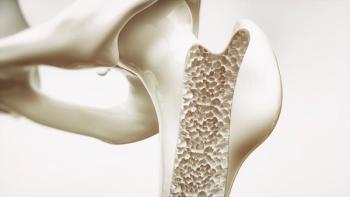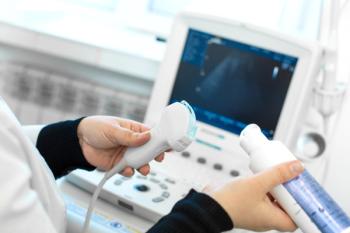
Enhanced recovery after surgery (ERAS) programs could help reduce hospitalization time, costs, and opioid use.

Enhanced recovery after surgery (ERAS) programs could help reduce hospitalization time, costs, and opioid use.

Oklahoma Governor Kevin Stitt signed a bill into law, making performing an abortion a felony, punishable up to 10 years in prison.

COVID-19 pandemic findings reported by Kaiser Permanente.

An 18-day-old girl whose right cheek had become increasingly red and warm over 24 hours was directly admitted to an inpatient unit. She had firmness and pain to the affected area, fussiness, increased sleeping, and poor feeding, preferring the bottle to breastfeeding. What's the diagnosis?

A look back at this week's news.

New research from the University of California Los Angeles (UCLA) suggests assessments of anti-Mullerian hormone levels could help clinicians predict or detect bone loss among premenopausal women.

Some research shows the previous guideline may have led to the under-treatment of patients with chronic pain.

Among minimally invasive treatments for uterine fibroids, uterine artery embolization (UAE) produces greater fibroid shrinkage and more complications than MRI-guided HIFU (MRIgHIFU), according to a study in BMC Women’s Health.

Family history assessment, genetic screening are key to prevention.

Patients’ ability to choose can affect your practice.

Patients often don’t know where to find information on their benefits or don’t have time to do so.

Government help needed ‘to ensure the health of the American public.’

The FDA issued an updated letter to health care providers regarding reprocessed urological endoscopes manufactured by Karl Storz.

In this consult series, experts from SMFM discuss the evaluation and management of soft ultrasound markers for aneuploidy.

The handheld STI testing device makes its way into pediatric urgent care clinics across Alabama, Tennessee, and Louisiana.

Obstetrics and gynecologists (ob-gyns) are tough.

This week's news at a glance

Sexual assault affects more of those around us than we know, from coworkers to friends and family to the individual across from you in the coffee shop.

A look back at this week's news.

A study published in American Journal of Preventive Medicine compared prenatal care in women with various disabilities.

From SMFM, a visual summary of Consult #60.

This Consult discusses the management of pregnancies achieved with in vitro fertilization and provides recommendations based on the available evidence.

In this episode of Pap Talk, Matthew T. Siedhoff, MD, MSCR, discusses warning signs to watch for and shares his habit-hacking tips to refocus your routines and bring wellness back into your life.

An analysis of more than 100 mother-child pairs from Colorado found children with fetal exposure to cannabis had increased fat mass and fasting glucose levels compared to their counterparts without fetal exposure to cannabis.

Data from patients, technology would add to “foundation for all other health care.”

A physician’s goal is to care for patients, but a key part of being able to provide that care is the eternal quest for payment. One way to ensure that a practice maximizes its coding regimen is to make sure each session can be efficiently billed.

For extremely preterm infants, mother’s own milk may be helpful for preventing poor postnatal growth and some morbidities.

In this episode of Pap Talk, Jessica Shepherd, MD, MBA, FACOG, deep dives into the benefits of utilizing radio frequency ablation (RFA) for treatment of uterine fibroids, available RFA devices, and disparities in the condition.

A study examined 4 million posts on social media site in 2021.